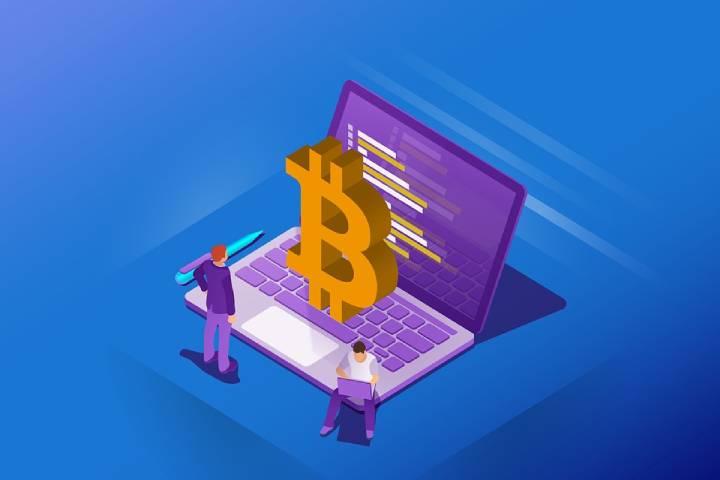Internet
Principles of Good Software Engineering
All of these factors have combined to make the software development scene far more competitive, which makes following the principles of sound software engineering all the more critical.

As in project management, there are always competing priorities in software development. And a team inevitably finds itself having to make compromises to find the delicate balance between these priorities and constraints. And rarely, if ever, do they succeed in reconciling them successfully and adequately.
However, in today’s modern software world, this notion of compromise is no longer acceptable. Even “better, cheaper, and faster” is no longer good enough. Today’s customers want top quality, regular updates, and a competitive price, and sometimes, their demands go much further. Successful software development now requires adding far more value. Software vendors’ products and services must meet an ever-increasing set of criteria with no room for compromise.
As technological infrastructure costs have fallen, higher performance storage, memory, and processors are now available to all developers at a more affordable price. At the same time, software development tools and methods have undergone exciting changes, with open source and low-cost tools being far more widely available.
Now, a single engineer can deploy a web application that supports auto-scaling, consisting of a message queue and a database, all in just minutes, matching the same results that used to take the entire team days or weeks. By using a highly scalable and available cloud infrastructure, the cost of hosting an application is a fraction of what it was just a decade ago.
All of these factors have combined to make the software development scene far more competitive, which makes following the principles of sound software engineering all the more critical. In this article, we’ll lay some of the essential ones down.
Table of Contents
1. Timeliness
You must deliver value to customers faster than your competitors while anticipating their growing expectations and ever-changing demands.
2. Adaptability
Vendors need to produce software that can adapt to ever-changing market conditions. Businesses need their software to adapt and deal with various abnormal market conditions in a world of supply chain constraints, tariffs, and unstable energy prices. They are long gone the days of rigid software design following pre-set formulae.

3. Maintainability
If you want to earn long-term clients, you need to pay attention to maintainability. Technological advances have yet to overcome an inconvenient truth: 75% of software costs are related to maintenance and administration issues. Software design must contribute to the simplification and optimization of maintenance processes.
4. Automation
When it comes to development, it is essential to leverage automation tools and methods for the design and deployment phases and to limit the slowdowns caused when processes rely on manual tasks. As the demand for skilled developers grows, the cost of developers’ time increases. You don’t want your developers to spend hours doing unproductive tasks. Automation is an essential tool to help make your team more competitive.
5. Scalability
Scalability must be at the heart of the software architecture. To truly reach scalability, the software you design must be genuinely open to allow for growth from 20 to 20,000 and from 20,000 to 20 million users without having to touch the underlying software architecture or, worse yet, force the customer into a situation where the product must be replaced entirely.
But scalability isn’t just about the number of users: it’s also about the volume of data, the complexity of the application, and the number of developers that can concurrently work on the project.
6. Measurability
Software should measure and provide key metrics, reports, and business outcomes that DevOps, site reliability engineers (SREs), and business teams can leverage to improve business performance and success.
7. Resilience
In the event of a problem, a well-engineered software program must be able to recover its operation, quickly restore lost functionality, or prevent data loss to ensure that it does not negatively impact the business and customer experience. Regular backups, trace logs, and error handling play vital roles here.
Conclusion
In conclusion, it is not a matter of meeting some of the criteria here. If you want to be successful, It is imperative to meet all of them. Otherwise, a competition that provides excellent product engineering services will take care of it.
Bitcoin
Stocks or Currency for Investors: Bitcoin
The debate surrounding Bitcoin’s classification as either stocks or currency is a topic of great interest. Bitcoin stocks or currency for investors.

The debate surrounding Bitcoin’s classification as either stocks or currency is a topic of great interest. This article explores the potential of Bitcoin from both perspectives. Elevate your Bitcoin trading game by accessing the wealth of information and resources at https://quantum-code.app/, where traders can develop their skills and unlock their full trading potential.
1. Bitcoin as a Currency for Investors
Bitcoin has gained significant attention as a potential currency for investors, offering several advantages in the digital economy. One of the key advantages of Bitcoin as a currency is its decentralized nature, operating without the need for intermediaries such as banks or governments. This decentralization gives users greater autonomy over their finances and reduces their dependence on traditional financial systems.
Another advantage of Bitcoin as a currency is its potential to protect against inflation. Unlike traditional fiat currencies, which can be affected by inflationary pressures, Bitcoin has a limited supply. With a maximum cap of 21 million coins, Bitcoin’s scarcity contributes to its value proposition as a hedge against inflationary pressures that can erode the purchasing power of traditional currencies.
Furthermore, Bitcoin holds the potential for global adoption. As a digital currency, it enables seamless cross-border transactions without the need for currency conversions or intermediaries. This feature makes Bitcoin particularly attractive for individuals and businesses engaged in international trade, eliminating the friction associated with traditional payment systems.
However, Bitcoin as a currency also poses certain risks and challenges. One significant challenge is the high volatility and price fluctuations it experiences. The value of Bitcoin can fluctuate dramatically within short periods, making it a risky investment for those seeking stability. Investors considering Bitcoin as a currency must carefully assess their risk tolerance and be prepared for potential losses.
Another concern is the regulatory landscape surrounding Bitcoin. As governments and financial authorities strive to understand and regulate cryptocurrencies, there are legal uncertainties and evolving regulations that can impact the use and acceptance of Bitcoin as a currency. Investors need to stay informed about the changing regulatory environment to make informed decisions regarding the adoption of Bitcoin as a currency.
Security is also a critical consideration when dealing with Bitcoin as a currency. While blockchain technology provides inherent security features, Bitcoin wallets, and exchanges can be vulnerable to hacking and cyber-attacks. Investors must take necessary precautions to secure their Bitcoin holdings and choose reputable platforms for transactions.

2. Bitcoin as Stocks for Investors
Another perspective on Bitcoin for investors is to view it as a form of stock or digital assets. While traditionally stocks represent ownership in a company, Bitcoin can be seen as a digital asset that holds investment potential.
One of the similarities between Bitcoin and traditional stocks is the opportunity for investment and potential value appreciation. Bitcoin’s price has experienced significant growth over the years, attracting investors looking for high returns. As more individuals and institutions recognize Bitcoin’s value and potential, its market demand and price may continue to rise.
However, it’s important to note that Bitcoin as a stock also comes with its own set of risks and challenges. The market for cryptocurrencies, including Bitcoin, is highly volatile and subject to sudden price fluctuations. The value of Bitcoin can change dramatically within short periods, making it a speculative investment that requires careful consideration.
Unlike traditional stocks, Bitcoin also lacks regulatory oversight. While this aspect may be appealing to some investors seeking a decentralized and independent investment, it also exposes them to potential market manipulation and fraudulent activities. Without strict regulations and oversight, investors need to be cautious and conduct thorough research before entering the Bitcoin market.
Additionally, the limited understanding and education surrounding Bitcoin and cryptocurrencies pose challenges for investors. The technology behind Bitcoin, such as blockchain, can be complex for individuals unfamiliar with the underlying mechanisms. It’s crucial for investors to educate themselves about Bitcoin, its market dynamics, and the factors that can influence its price movements.
Investing in Bitcoin as a stock requires careful consideration of various factors. Investors should conduct market research and analysis to identify trends and make informed investment decisions. Timing is also critical, as entering the market at the right moment can significantly impact potential returns. Due diligence, risk assessment, and staying informed about regulatory changes and industry developments are essential for managing investments in Bitcoin as stocks.
Conclusion
As the financial landscape continues to evolve, Bitcoin offers unique opportunities as both a currency and a form of stock. Understanding its advantages, risks, and the considerations involved can help investors make informed decisions about incorporating Bitcoin into their investment strategies.
-

 Instagram2 years ago
Instagram2 years agoBuy IG likes and buy organic Instagram followers: where to buy them and how?
-

 Instagram2 years ago
Instagram2 years ago100% Genuine Instagram Followers & Likes with Guaranteed Tool
-

 Business4 years ago
Business4 years ago7 Must Have Digital Marketing Tools For Your Small Businesses
-

 Instagram3 years ago
Instagram3 years agoInstagram Followers And Likes – Online Social Media Platform















